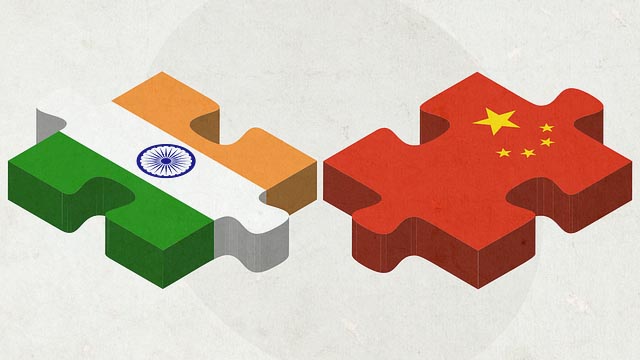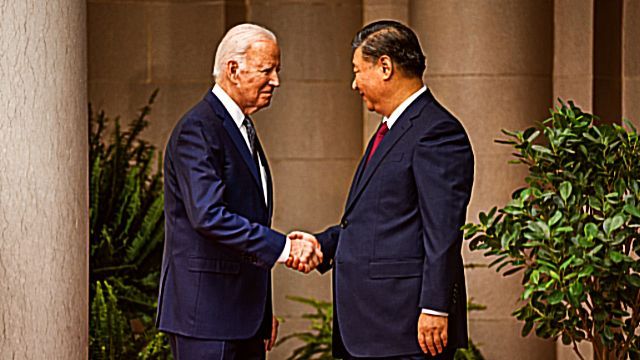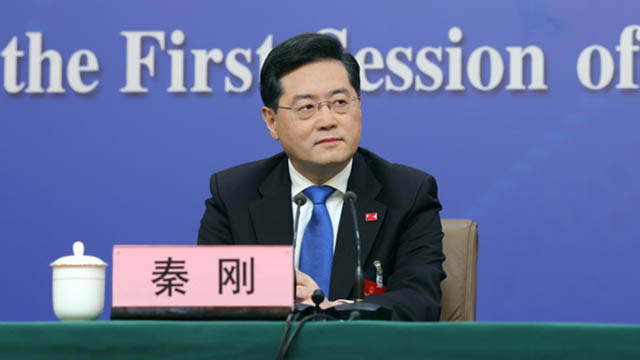On Monday, June 5th, the Financial Times reported that French President Emmanuel Macron has objected to the expansion of the US-led military alliance North Atlantic Treaty Organization (NATO) into Asia. Macron’s opposition to NATO’s expansion into Asia has exhibited the fissures within the military bloc accused of major aggressions and genocides worldwide.
“If…we push NATO to enlarge the spectrum and the geography, we will make a big mistake,” Macron said at a conference last week, the Financial Times reported. Earlier on May 3rd, a Nikkei Asia report revealed that NATO Secretary General Jens Stoltenberg indicated that the bloc is in talks to open an office in Japan’s capital Tokyo to counter China and Russia. If this NATO outpost is established in Japan, it will be the first in Asia.
Nikkei Asia writes that the NATO outpost will consult alternately with Japan, South Korea, Australia and New Zealand, in addition to focusing on old adversary Russia and the rising power China.
However, hitherto NATO’s role is limited to the North Atlantic geographic region as per its charter. Naturally, NATO’s presence outside the North Atlantic has caused a great deal of controversy in international politics.
Incidentally, in 1949, NATO was formed by 12 countries in the North Atlantic region under the leadership of the US to counter the growing influence of the former Soviet Union. The Soviet Union-led former socialist bloc formed the “Warsaw Pact” in 1955 to counter NATO.
However, NATO was not abolished even after the natural death of the Warsaw Pact with the collapse of the Soviet Union in 1991. At present, the number of NATO members has increased to 31. NATO expanded into Russia’s immediate neighbourhood in violation of agreements with the first and last president of the Soviet Union, Mikhail Gorbachev.
Russian officials have repeatedly claimed that NATO’s expansion has forced Russia to initiate its “special military operations” in Ukraine.
Allegedly, the US has been able to involve NATO countries in all aggressive operations, be it the war in the former Yugoslavia, the Afghan war or the assassination of Libyan President Muammar Gaddafi, and it placed the economic and military burden on the European countries.
This time, the US wants NATO’s expansion into Asia, especially in the Indo-Pacific region, far from its area of operation, to encircle China. There is considerable room for doubt as to whether the US, for its sake, wants to drag the NATO alliance into the Indo-Pacific region, imposing additional economic and military burdens on other NATO members.
In an interview with the US newspaper Politico, following his meeting with Chinese President Xi Jinping in April, Macron advocated reducing Europe’s dependence on the US. The French president said the “the great risk” Europe faces is that it “gets caught up in crises that are not ours, which prevents it from building its strategic autonomy”.
After Russia started its “special military operation” in Ukraine, German Chancellor Olaf Scholz announced military spending of 2% of his country’s GDP. But on December 5th 2022, a German government spokesperson informed the press that a 2% military spending allocation would not be possible before 2025.
Criticising Germany’s failure to increase its military spending, the US newspaper The Wall Street Journal accused Berlin of reneging on its defence spending commitments, which is jeopardising NATO’s expansion into Asia.
A report released by the Stockholm International Peace Research Institute (SIPRI) on April 24th shows that in 2022 alone, European military spending rose 13% to the highest level since 1989, before the collapse of the Soviet Union. The report blames the rise in military spending on the Russia-Ukraine war, inflation, and the US’s efforts to contain China.
NATO’s expansion plans in Asia have also become a matter of concern among regional countries. Japan is mainly welcoming NATO’s expansion into Asia. An office in Tokyo would formalise and sustain NATO’s Indo-Pacific partnership, Yuka Koshino, a research fellow for Security and Technology Policy at The International Institute for Strategic Studies (IISS) told the Financial Times.
Nobukatsu Kanehara, a former top official in former Japanese Prime Minister Shinzo Abe’s administration, told the Financial Times that Japan is supporting Ukraine because it believes the problems on both sides of Eurasia are connected. “The relationship between Japan and NATO has grown closer because they have China at the helm”, Kanehara said.
Chinese experts have hailed Macron’s opposition to NATO’s expansion into Asia as a “bold move”. Chinese Foreign Ministry spokesperson Wang Wenbin was quoted by Global Times saying that the attitude of the majority of countries in the region is very clear. They oppose the emergence of military blocs in the region. They don’t welcome NATO’s outreach in Asia. They don’t want a replica of bloc confrontation in Asia. And they certainly will not allow any Cold War or hot war to happen again in Asia.
On the other hand, according to media sources, Cambodian Prime Minister Hun Sen has opposed NATO’s expansion into Asia, saying, “NATO exists only in the West, and now it seems to be involved in various activities in the Asia-Pacific region, which is causing concern for ASEAN.”
Representatives from Indonesia, Singapore and several other countries expressed their reluctance to see a new Cold War at the Shangri-La Dialogue—an international security conference—in Singapore from June 2nd to June 4th.
Macron’s move is expected to overturn months of talks within the NATO alliance to establish its first outpost in the Indo-Pacific region. Opening an office in Japan would require unanimous approval from the North Atlantic Council, where France could use its veto to overturn the plan.
The Europeans realise that NATO’s expansion into Asia will mean encircling China, which can destroy the mutual understanding between China and the Europeans. As a result, China may send weapons directly to Russia in its military operations in Ukraine. This may further complicate the situation in Europe, as several countries are dependent on Chinese imports.
The US has already formed “NATO Plus Five”. These additional five countries are Australia, New Zealand, Japan, Israel and South Korea. US plans to include India in this NATO Plus. Ahead of Prime Minister Narendra Modi’s visit to the US at the end of June, Washington DC has proposed that India joins NATO Plus. Incidentally, Modi will address the joint session of the US Congress for the second time during this visit. Which is a rare honour according to the US media.
However, at a press conference on Thursday, June 8th, Indian External Affairs Minister S Jaishankar dismissed the possibility of India joining NATO Plus. Jaishankar said the NATO template is not applicable to India. India can resist “Chinese aggression” on its own.
Clearly, the US would like to include India in NATO Plus to put the financial and military burden of the anti-China military build-up on India. The history of the US spy agency CIA tells us that there are several ways in which the US would seek to bring India into its alliance, with all the nefarious means. Whether it succeeds in making India a party to NATO’s expansion into Asia is another matter.
If the Americans somehow succeed, India-China contradictions on various issues will become difficult to resolve in bilateral talks. Which will be dangerous for India’s political independence and economic development.




